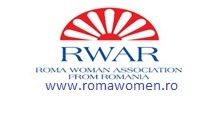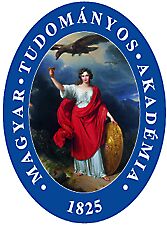 Action Synergy S.A. is an ICT R&D, training and knowledge- based applications organization which is actively involved in the development of education technologies, training methodologies and the development of e-learning training courses. Action Synergy S.A. disposes a long experience in the management and coordination of European Projects. It is currently coordinating six projects in the framework of the Lifelong Learning Programme. Since its foundation in 1987 the organization has participated in a considerable number of EU educational projects, such as COMETT, PETRA, SOCRATES, LEONARDO DA VINCI, ARTICLE 6, ADAPT, TEMPUS, PHARE,-Distance learning. Action Synergy’s S.A. key areas of expertise include: Development of learning methodologies, Development of educational technologies, Development of courses and modules making use of innovative methodologies such as: open/flexible learning methodologies, e-learning, learning needs analysis, development of professional profiles and lists of skills and competencies, development of synergies at local, national and transnational level.
Action Synergy S.A. is an ICT R&D, training and knowledge- based applications organization which is actively involved in the development of education technologies, training methodologies and the development of e-learning training courses. Action Synergy S.A. disposes a long experience in the management and coordination of European Projects. It is currently coordinating six projects in the framework of the Lifelong Learning Programme. Since its foundation in 1987 the organization has participated in a considerable number of EU educational projects, such as COMETT, PETRA, SOCRATES, LEONARDO DA VINCI, ARTICLE 6, ADAPT, TEMPUS, PHARE,-Distance learning. Action Synergy’s S.A. key areas of expertise include: Development of learning methodologies, Development of educational technologies, Development of courses and modules making use of innovative methodologies such as: open/flexible learning methodologies, e-learning, learning needs analysis, development of professional profiles and lists of skills and competencies, development of synergies at local, national and transnational level.

The Maranatha Federation of Gypsy Associations, is an organization of 20 associations distributed throughout the Valencian Community. Their main objectives are the training of Roma people and the promotion of this ethnic group and its culture. Technical experts, peers and volunteers work in service of the member associations and also on the projects that these associations are currently implementing. Those projects are within wider programmes, such as eradication of school early leave/ absenteeism, promotion of Roma women or provision of socio-labour mediation services. The Maranatha Federation is also in charge of the celebration of festivals, intercultural colloquiums, workshops and international seminars.

IDEA ROM ONLUS is the first Italian association of Roma Women and is component of the National Roma Federation. The association operates in Turin (Italy) at the biggest settlements of Roma families in the city. The Association is made up of Roma women belonging to different communities in Turin, some with professional experience in the field of cultural mediation. Idea Rom promotes progressive forms of direct representation, formal and substantive, of different communities. In 2010 the association was awarded by a Special Plaque of the President of the Italian Republic due to its work to promote the social integration of its community. In 2011 IDEA ROM ONLUS was partner of E R.R.C. (European Roma Right Center) in Budapest for the project "Research on the Situation of the Romani Women in Italy". The result was the CEDAW shadow report to the Commission (Committee on the Elimination of Discrimination Against Women) which periodically checks the implementation of the UN Convention signed by every signatory state.

RWAR – Roma Women Association in Romania , is an NGO, apolitical founded on 04 September 1996 with P.J. 164/1996 and modified according to that status with P.J. 142/2008 .Included at Association and Foundation Register according Certification nr. 56 / 20.06.2008. The Mission of RWAR, is focused on the development and affirmation of the Roma community in specially for Roma Women from Romania through activities and projects for social policies on the benefit for Roma minority with emphasis in the development of the quality of life for the Roma women from Romania.

The Institute of Sociology, Centre for Social Sciences, Hungarian Academy of Sciences with more than 50 associates is currently the biggest research establishment of Hungarian sociology. The researchers of the Institute conduct the empirical study of social processes with aspirations of developing sociological theories and methodology. As experts they participate in the management of the society, in elaborating the different sociological contexts of the social policy and economy, in the development of different types of reform concepts and also in their critical analysis. The associates of the Institute organize workshops, national and international conferences for the discussion of scientific issues.
Read more: INSTITUTE OF SOCIOLOGY, CENTRE FOR SOCIAL SCIENCES, HUNGARIAN ACADEMY OF SCIENCES

This project is co-funded by the European Commission. This publication reflects the views of the author only and the Commission cannot be held responsible for any use of the information contained therein.
![]()